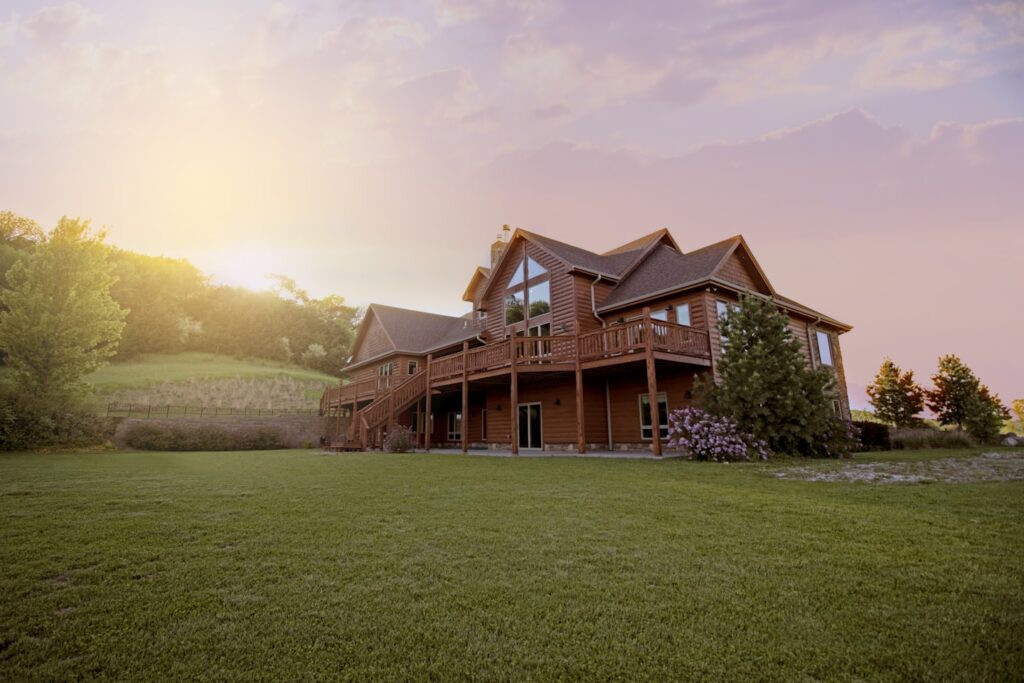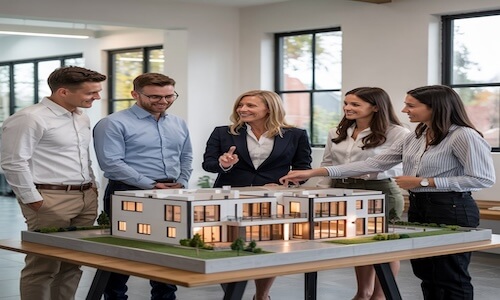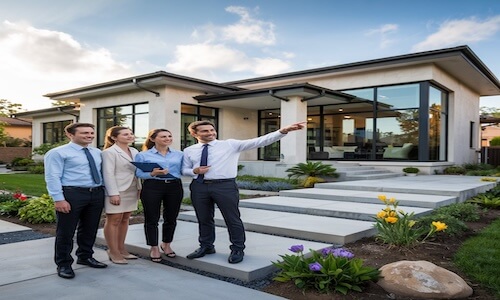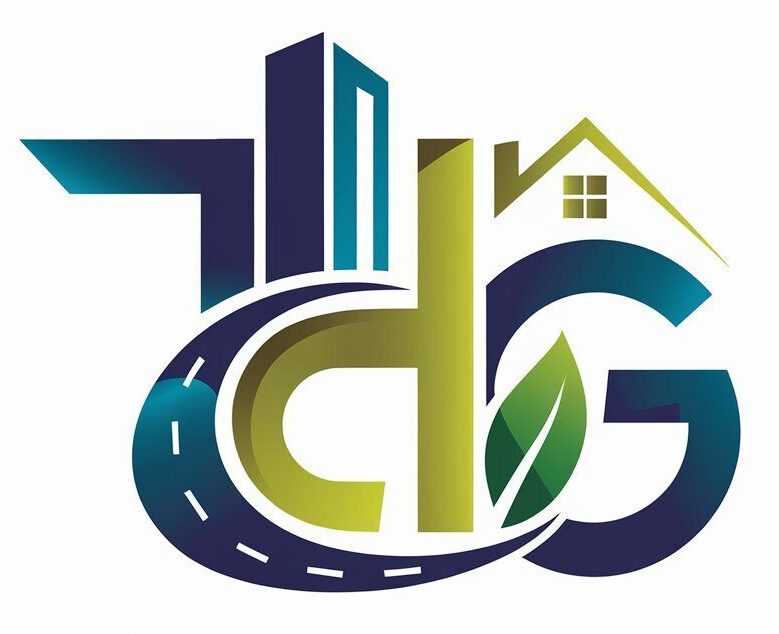Resale Value
The Resale Value of a Custom Home: A Comprehensive Comparison
When building or purchasing a home, one of the most important considerations is its potential resale value. Whether it’s a custom home, a new build, or an existing property, understanding how a home’s design, location, and features affect its future marketability is crucial for homeowners and investors alike. In this article, we’ll explore the resale value of custom homes, compare them with other types of homes, and provide insights into factors that influence the long-term value of a property.

What is a Custom Home?

A custom home is a property that is designed and built according to the specific preferences and needs of the homeowner. Unlike production homes that are built based on pre-designed floor plans, a custom home allows the homeowner to make decisions about layout, materials, finishes, and other architectural features. Custom homes are often constructed by high-end builders or design professionals who work closely with the owner to bring their vision to life.
Resale Value of a Custom Home
The resale value of a custom home depends on multiple factors, including the quality of construction, the location, the uniqueness of the design, and market conditions. Custom homes can have both advantages and disadvantages when it comes to resale value compared to other types of properties.
Advantages of Custom Homes in Terms of Resale Value
- Quality of Construction and Materials:
- Custom homes often use superior materials and higher-quality craftsmanship compared to mass-produced homes. Buyers tend to value well-built homes that require fewer repairs and less maintenance. This higher quality can translate to a better resale value, particularly in markets where home buyers prioritize durability and long-term investments.
- Unique Features and Personalization:
- One of the key selling points of a custom home is the level of personalization it offers. Features such as bespoke cabinetry, unique architectural elements, or advanced home automation systems can make the home stand out in the market. These distinctive features may appeal to certain buyers who are looking for something special or unique. In some high-end markets, homes with personalized and distinctive designs can command a premium price.
- Energy Efficiency and Smart Home Features:
- Modern custom homes are often built with the latest energy-efficient technologies and smart home features, such as solar panels, energy-efficient HVAC systems, or integrated smart appliances. As more homebuyers become conscious of energy usage and sustainability, these elements can significantly increase the resale value. Homes with energy-efficient features are also often eligible for tax incentives or rebates, making them more appealing to potential buyers.
- Higher Potential for Upscale Neighborhoods:
- Custom homes are often built in desirable, upscale neighborhoods where homes appreciate well over time. As the custom home market is typically more exclusive, owning a custom home can increase its potential for significant appreciation in the future. In such neighborhoods, buyers may be willing to pay more for a one-of-a-kind home.
Disadvantages of Custom Homes in Terms of Resale Value
- Overbuilding for the Neighborhood:
- One of the most significant risks when building a custom home is overbuilding for the neighborhood. While custom homes allow for personalization, building a house that is much larger or more luxurious than other homes in the area can limit the resale value. The resale price of a custom home may be constrained by the market value of surrounding homes. In markets with lower-priced homes, even a custom home might struggle to sell at a premium if it’s too much more expensive than the neighboring homes.
- Limited Buyer Pool:
- The unique design and personalized features of a custom home can limit its appeal to a broad range of buyers. For instance, certain custom features, such as a home theater room or very specific interior designs, may not appeal to everyone. This limited appeal can reduce the number of potential buyers, which may lead to a lower resale value or a longer time on the market.
- Potential for Over-Personalization:
- While custom homes allow for personalization, this can also backfire if the choices made by the homeowner are too specific or unconventional. For example, bold design choices, unusual materials, or personalized layouts may turn off future buyers who are looking for more traditional or neutral homes. If a home is overly tailored to the owner’s tastes, it can be harder to sell, as prospective buyers may not share the same vision.
- High Initial Costs and Limited Return on Investment (ROI):
- The cost of building a custom home is often significantly higher than buying an existing home or a spec home. Although custom homes can offer higher resale values, they may not always yield the same return on investment (ROI) as other types of homes, especially in markets where homebuyers are less willing to pay for unique features. In some cases, the amount spent on upgrades or luxurious features may not be recouped when the home is sold.
Custom Homes vs. New Build Homes

New build homes, while similar to custom homes in that they are newly constructed, typically come with pre-designed floor plans and standard finishes. These homes are often built in large communities or subdivisions by large homebuilders.
Resale Value Comparison:
- Customization: New build homes often lack the personalized touches of a custom home. While they might have modern designs and energy-efficient features, they do not offer the same level of customization. However, they are usually more appealing to a broader range of buyers, which can result in a quicker sale and a more stable resale value.
- Price Point: New build homes tend to be priced lower than custom homes, which means that they are more accessible to first-time buyers or those looking for affordable options. While they may have a lower resale value than custom homes, they may offer a better ROI in areas where affordability is a major concern for buyers.
- Market Demand: In certain real estate markets, new build homes may have better resale value due to their affordability and standardized appeal. Custom homes may be harder to sell in areas where the demand for unique or high-end properties is lower.
Custom Homes vs. Existing Homes

Existing homes are pre-owned properties that have been lived in before and are typically sold through real estate agents. These homes often require renovations or updates to meet modern standards, but they also tend to be priced lower than new builds or custom homes.
Resale Value Comparison:
- Affordability: Existing homes are often more affordable than custom homes, making them more appealing to a larger segment of the market. Buyers seeking a move-in ready home without the high price tag of a custom build may prefer existing homes, resulting in faster sales and a more predictable resale value.
- Maintenance Costs: While existing homes are generally cheaper, they often come with higher maintenance and repair costs due to their age. Custom homes, with their newer materials and construction methods, typically come with fewer maintenance issues. However, the higher upfront cost of a custom home may deter budget-conscious buyers.
- Design and Features: Existing homes may not have the latest design trends or modern features found in custom homes, which can impact their resale value. Custom homes, by contrast, typically offer cutting-edge design, technology, and energy-efficient systems that could attract buyers willing to pay a premium for those features.
Factors That Influence Resale Value

Regardless of the type of home, several factors influence resale value:
- Location: The location of a home is one of the most significant factors in determining its resale value. Homes in desirable neighborhoods with good schools, low crime rates, and convenient access to amenities typically see higher resale values.
- Market Conditions: The housing market plays a crucial role in resale value. In a seller’s market, where demand exceeds supply, homes, including custom homes, can command higher prices. In a buyer’s market, however, prices may stagnate, and resale values may be lower.
- Economic Factors: Broader economic trends, such as interest rates, inflation, and employment rates, can impact the resale value of homes. When the economy is strong, buyers are more likely to invest in custom homes or new builds. Conversely, during economic downturns, demand may decrease.
